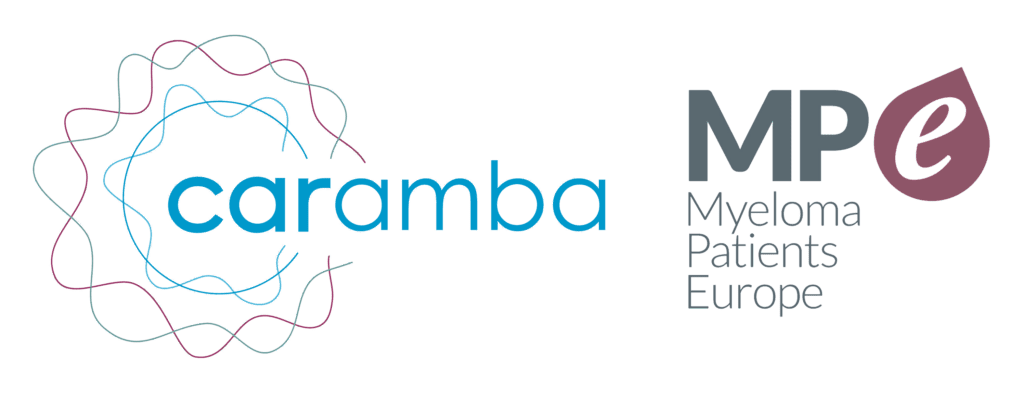Myeloma Patients Europe (MPE) joins project consortium looking at the role of innovative CAR-T immunotherapy in multiple myeloma
 Today marks the official launch of a new international project consortium, known as “CARAMBA”, which will research an innovative immunotherapy for the treatment of multiple myeloma, known as Chimeric Antigen Receptor T-cell therapy (CAR-T). Through strategic collaboration with a wide-range of stakeholders, the consortium aims to ensure the streamlined transition of CAR-T from the laboratory through to multiple myeloma patients in the clinic.
Today marks the official launch of a new international project consortium, known as “CARAMBA”, which will research an innovative immunotherapy for the treatment of multiple myeloma, known as Chimeric Antigen Receptor T-cell therapy (CAR-T). Through strategic collaboration with a wide-range of stakeholders, the consortium aims to ensure the streamlined transition of CAR-T from the laboratory through to multiple myeloma patients in the clinic.
The European Union funded project is coordinated by University Hospital Würzburg, a research leader in cancer immunotherapy, and involves ten expert partners across Europe. Myeloma Patients Europe (MPE) is a member of this innovative project consortium. MPE CEO Ananda Plate commented:
“The development of CAR-T is an exciting approach for myeloma and we are really pleased to be involved in the CARAMBA project to ensure the patient voice is represented at each stage. CAR-T offers a potentially huge benefit for myeloma patients, but there are also challenges in terms of side-effects, administration and costs – it is therefore important for multi-stakeholder project consortia such as this to research CAR-T together and to identify, anticipate and overcome challenges when they arise. We look forward to seeing how this develops over the next four years.”
CARAMBA is specifically looking at targeting CAR-T at a specific protein called SLAMF7 which is expressed on the surface of myeloma cells. The safety and efficacy of SLAMF7 specific CAR-T cells will be assessed in multiple myeloma patients through a small Phase I/II clinical trial involving around 30 patients. In the clinical trial, a type of white blood cell which makes up part of the immune system (T-cells) will be collected from patients and equipped with a chimeric antigen-receptor (CAR). When reintroduced into patients’ bodies, it acts like a sensor boosting the ability of the T-cells to find and destroy myeloma cells. This innovative approach has been developed by Dr Michael Hudecek and Prof Hermann Einsele at University Hospital Würzburg.
Over the coming years, the clinical trial will be opening in four cancer centres in Europe – Würzburg, Pamplona, Milan and Lille. As well as the clinical aspects, the project consortium will also collaborate on regulatory and access issues and on ensuring that patient preferences are utilised in the project.
About the CARAMBA project consortium
The project consortium is part of Horizon2020, a large-scale EU Research and Innovation programme. It funds a wide-range of different projects relating to science, innovation and tackling societal challenges. The European Commission selected the CARAMBA project from more than 100 highly-competitive project proposals and will support it over four years with funding of 6.1 million euros.
Ten partners from six EU-countries are collaborating through the CARAMBA project consortium. It includes four clinical centres of excellence in cancer: University Hospital Würzburg (UKW), Ospedale San Raffaele (Milan), Universidad de Navarra (Pamplona) and the Centre Hospitalier Regional et Universitaire de Lille (Lille).
Further project partners include the patient organisation Myeloma Patients Europe (MPE), the DRK- Blutspendedienst Baden-Württemberg-Hessen (BSD-BRK), the German Federal Institute for Vaccines and Biomedicines (PEI), the biotech companies NBE-Therapeutics (Switzerland) and T-CURX (Germany) as well as the French project management provider ARTTIC S.A.S.
If you have any questions about the project, please email MPE Policy and Public Affairs Manager Kate Morgan at morgan@mpeurope.org
This project has received funding from the European Union’s Horizon 2020 research and innovation programme under grant agreement No 754658